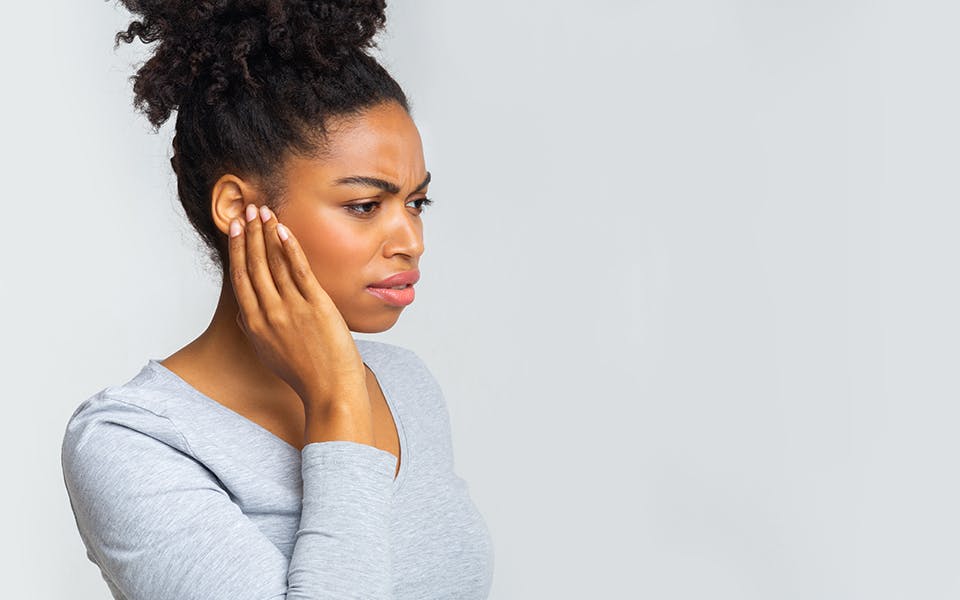Have you noticed the ringing in your ears increases every so often? Tinnitus spikes are caused by an internal or external trigger or a combination of the two. Learning what agitates your condition can help you create strategies to avoid tinnitus-inducing scenarios.
Understanding Tinnitus Spikes
A tinnitus spike is characterized by an increase in the volume, pitch or intensity of the ringing in your ears. It may also be a change in the perceived sound. For example, ringing could sound more like buzzing or whooshing during a tinnitus spike.
An episode can last for minutes, hours, days or weeks, depending on the cause. You may experience an elevated sense of anxiety or frustration while the ringing is more noticeable. Those emotional responses further aggravate your symptoms, creating a cycle of stress that worsens tinnitus.
Causes of Tinnitus Spikes
Internal factors that cause tinnitus spikes include:
- Dietary choices: High sodium, sugar or caffeine intake impacts your circulation to your ears.
- Alcohol or nicotine consumption: Both substances constrict and reduce oxygen flow to the blood vessels in your ears.
- Medication, vitamins and supplements: Aspirin, antibiotics and anti-inflammatory drugs may exacerbate your tinnitus symptoms.
- Anxiety or depression: Heightened emotions can elevate your perception of the ringing in your ears.
- Recreational drug use: Illicit drugs impact your nervous system, which is linked to your hearing health.
- Dehydration: The fluids in your inner ear require proper hydration, so a lack of it can agitate your tinnitus.
- Lack of sleep: Insomnia or disrupted sleep may cause stress and anxiety, affecting your auditory system.
- Allergies: Sinus congestion and fluid buildup in your ears can influence the severity of the ringing in your ears.
- Earwax buildup: Earwax blocks sound from traveling into your ear, increasing the perception of your symptoms.
- Ear infections: Inflammation and fluid retention are common culprits of tinnitus spikes.
External factors include:
- Weather patterns: Humidity and temperature changes affect your sinus and ear pressure, which might worsen your symptoms.
- Barometric pressure: A tinnitus spike may result from a drop or rise in barometric pressure, like before a storm.
- Pollution: Smoke, chemicals and pollutants can cause inflammation in your body, including the sensitive tissue in your ears.
- Noise exposure: Sudden or repeat exposure to loud sounds damages the hair cells in your inner ear that send signals to the auditory cortex in your brain.
- Air travel: Rapid changes in altitude and cabin pressure may temporarily agitate your tinnitus.
- Trigger sounds: Certain frequencies and tones could set off the ringing in your ears.
Identifying Tinnitus Triggers
Tracking your symptoms and daily habits allows you to identify which internal and external influences cause a tinnitus spike. Keep a written or digital log of your condition to spot patterns and possible triggers.
Here are some factors to monitor:
- Food and beverage intake
- Sleep schedule
- Daily exercise
- Medication
- Stress level
- Weather conditions
Monitor your flare-ups and rate them on a scale of one to 10. Take note of the days with increased symptoms to determine the source of your discomfort so you can avoid conditions and habits.
Can I Avoid Tinnitus Flare-ups?
Tinnitus isn’t completely preventable, but it’s manageable. Eating well-balanced meals, exercising regularly and avoiding tobacco support cardiac health and blood flow, which can influence tinnitus severity. Taking stock of your lifestyle choices could also reduce the frequency and intensity of your tinnitus spikes.
How Do I Cope with a Tinnitus Spike
It’s important to learn to differentiate the factors within your control. Doing so may reduce the stressful reactions you experience during a spike. For instance, you can’t control the volume of the ringing in your ears or how long an episode will last, and trying to do so will only cause you more anxiety. You can control how you react to the sensation and take action to focus on your other senses.
Here are some best practices to help you cope with a tinnitus spike:
- Sleep habits: Go to bed and wake up at a consistent time. Getting enough sleep helps ease the stress and improves your mood.
- Relaxation: Meditation, breathing exercises, reading and journaling are good ways to focus your mind during a spike in your symptoms.
- Therapy: Discussing the emotional effects of your condition can ease the burden. Therapists may also recommend coping strategies that help ease discomfort.
- Support groups: Connecting with individuals who share a similar experience provides a source of comfort. You may also learn different coping techniques from other people.
- Hearing aids: Some hearing aids have tinnitus masking programs designed to cover the ringing in your ears with soothing sounds.
- Sound therapy: This technique conditions your brain to ignore tinnitus triggers. Sound therapy helps you learn how to alter your emotional and physical response to the ringing.
Tinnitus Treatment at Hearing Associates
Are you struggling with tinnitus? Hearing Associates offers comprehensive hearing tests and hearing devices to identify and ease symptoms. Call 888-760-2032 or schedule your appointment online.


